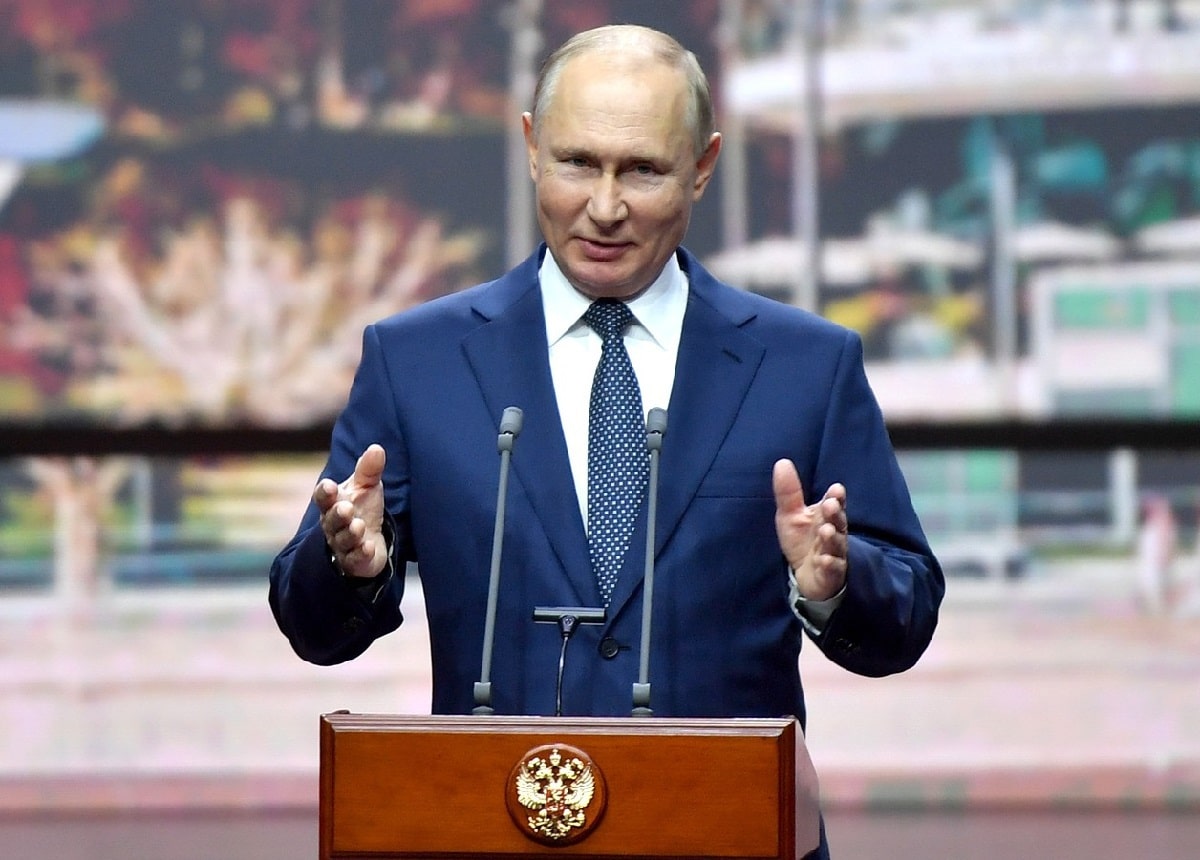Years from now, when scholars look back at Russia’s contemporary descent into authoritarianism, they are liable to point to 2021 as the year the Kremlin finally succeeded in killing Russian media. That’s because, over the past twelve months, the government of President Vladimir Putin has carried out what amounts to an unprecedented assault on information within the Russian Federation.
The Russian government’s strategy consists of two parts. Procedurally, authorities in Moscow have wielded stringent rules and legal action to narrow the parameters of both acceptable speech and available information within the country. At the same time, the Kremlin has sought to co-opt Russia’s social media sphere through a variety of means, from taking control of the country’s most influential platform to banning the technology necessary for unfettered access to the World-Wide Web on the part of its opponents.
In this effort, the Russian government’s most potent weapon has unquestionably been a legal one. Nearly a decade ago, Russia’s lower house of parliament passed a draconian law designating organizations and activists receiving funding from abroad as “undesirables” and “foreign agents” who represent potential threats to national security. Since then, the provision has been used by the Kremlin against an assortment of political enemies, including the Anti-Corruption Foundation of now-imprisoned critic Alexei Navalny and the Memorial human rights center, which focuses on unearthing Soviet-era atrocities. But it has also been expanded and amended to encompass an ever-growing list of targets whose messages are deemed hostile to the Kremlin.
Foreign-funded news agencies are prominent among them. In 2017, the Kremlin classified any such outlets as foreign agents and forced them to disclose their funding sources and affix disclaimers to all of their content. Those that don’t face stiff fines or the prospect of being barred from operating in Russia entirely. That’s the situation now confronting Radio Free Europe/Radio Liberty, a key U.S. government broadcaster that played a critical role in bringing information to populations behind the Iron Curtain during the Soviet era. Last month, six of RFE/RL’s journalists were put on the Kremlin’s “foreign agent” blacklist, and the service now faces more than $13 million in fines leveled by Russia’s state censor, ROSKOMNADZOR, for noncompliance with the “foreign agent” order. The aggregate goal of these steps, its executives are convinced, is to drive RFE/RL out of Russia entirely.
Moscow’s anti-media campaign, however, is much broader. The Kremlin has also targeted a slew of other journalists and news channels it deems threatening (or even simply unfriendly) over the past year. Among them are news website Meduza (designated in April 2021), investigative outlet The Insider (designated in July 2021) and the independent Dozhd television channel (designated in August 2021). All told, there are now 75 individuals and more than three dozen media outlets labeled as “foreign agents” by Russia’s Justice Ministry. The objective is abundantly clear: to undermine the credibility of those designated and make it more difficult to challenge the Kremlin-approved interpretation of reality.
At the same time, Russia’s government has also dramatically expanded its grip on the country’s social media sphere. In early December, state natural gas giant GAZPROM, via a subsidiary, secured a controlling interest in VKontakte (VK), the popular social media platform that serves as the Russian version of Facebook. The arrangement is the culmination of a series of business deals that saw VK’s CEO, billionaire financier Alisher Usmanov, relinquish control of the platform, which is estimated to have some 100 million users. As a result, GAZPROM now has more than 50% of the voting rights in VK, making the platform (already accused of being far too close to the Russian government) more dependent than ever on the Kremlin’s good graces.
Simultaneously, authorities in Moscow are actively attempting to limit outside sources of information available to Russians. In the Fall of 2021, new restrictions promulgated by ROSKOMNADZOR effectively outlawed TOR, an encryption software that allows users to bypass web restrictions and surf the Internet anonymously. The measure is part of what Russian journalist Andrei Soldatov has called “a systematic attack on technologies that could be used by the country’s users to bypass censorship.” The move, says Soldatov, is significant “because the software allows users to access websites and pages blocked by the authorities.”
Moscow is also putting the squeeze on “big tech.” In December, a Russian court fined Google nearly $100 million and Facebook parent company Meta some $27 million. Their crimes? A “systematic failure to remove banned content” from their platforms. While these firms (and others) have faced fines before, the size of the latest penalties has led to speculation that “the political decision to expel Western services from Russia has been made.”
The aggregate result of these measures is nothing short of an “assault on the truth” on the part of the Russian government. It is a project that serves a clear geopolitical purpose, allowing the Kremlin to shape the narrative surrounding its foreign adventurism and obscure the true political and economic state of affairs within its own borders. That’s why, for Russia’s government, the information space has become a battlefield whose control is now a cardinal priority.
Ilan Berman is Senior Vice President of the American Foreign Policy Council in Washington, DC, where he directs the Council’s Future of Public Diplomacy Project and hosts its Disinformation Wars podcast.

